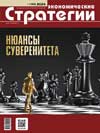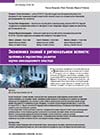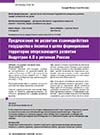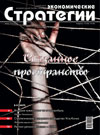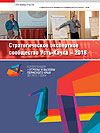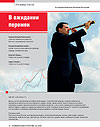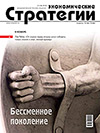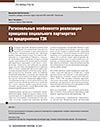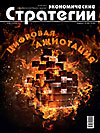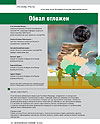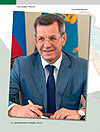Innovation Processes in Large Urban Agglomerations of Russia
DOI: 10.33917/es-2.194.2024.116-123
The author of the article analyzes trends in the development of innovation activity from 2005 to 2021 in the six largest urban agglomerations of Russia — Moscow, St. Petersburg, Nizhny Novgorod, Kazan, Yekaterinburg and Novosibirsk. As a result of the study, it was determined that in order to further realize the innovative potential of the largest urban agglomerations as sources of economic growth of the country, it is necessary to finance and support industries engaged in innovative types of economic activities, develop mechanisms for integrating science and business, build and develop inter-agglomeration (interregional) connections and cooperation in scientific-technological development.
References:
1. Aganbegyan A.G. O prioritetnom razvitii sfery ekonomiki znaniy [On the Priority Development of the Knowledge Economy Sphere]. Ekonomicheskoe vozrozhdenie Rossii, 2021, no 1(67), pp. 15–22, DOI: https://doi.org/10.37930/1990-9780-2021-1-67-15-22
2. Ushvitskiy L.I., Ter-Grigor’yants A.A., Rebiy A.P. Sovremennye tendentsii razvitiya innovatsionnykh protsessov v rossiyskoy ekonomike [Modern Trends in the Development of Innovation Processes in the Russian Economy]. Vestnik Severo-Kavkazskogo federal’nogo universiteta, 2017, no 2(59), pp. 120–128.
3. Shamina L.K. Vliyanie ekonomicheskoy kon”yunktury na innovatsionnuyu aktivnost’ otechestvennykh predpriyatiy [Influence of the Economic Situation on the Innovation Activity of Domestic Enterprises]. Ekonomicheskoe vozrozhdenie Rossii, 2021, no 4(70), pp. 147–155, DOI: https://doi.org/ 10.37930/1990-9780-2021-4-70-147-155
4. Kochetkov S.V., Kochetkova O.V. Innovatsionnoe sostoyanie ekonomiki regiona kak glavnoe uslovie snizheniya mezhterritorial’nogo neravenstva [Innovative State of the Regional Economy as the Main Condition for Reducing Interterritorial Inequality]. Ekonomicheskoe vozrozhdenie Rossii, 2023, no 1(75), pp. 50–55, DOI: https://doi.org/10.37930/1990-9780-2023-1-75-50-55
5. Mikhaylov A.S., Kuznetsova T.Yu., Peker I.Yu. Tipologiya regionov po ikh funktsional’noy roli v innovatsionnom prostranstve Rossii [Typology of Regions According to their Functional Role in the Innovation Space of Russia]. Regional’nye issledovaniya, 2019, no 4, pp. 46–57, DOI: https://doi.org/10.5922/1994-5280-2019-4-4
6. Rasporyazhenie Pravitel’stva RF ot 13 fevralya 2019 g. N 207-r “Strategiya prostranstvennogo razvitiya Rossiyskoy Federatsii na period do 2025 goda” [Order of the Government of the Russian Federation of February 13, 2019 No. 207-r “Strategy for spatial development of the Russian Federation
for the period until 2025”], available at: http://static.government.ru/media/files/UVAlqUtT08o60RktoOXl22JjAe7irNxc.pdf
7. Regiony Rossii. Sotsial’no-ekonomicheskie pokazateli. 2022: Stat. sb. [Regions of Russia. Socio-economic Indicators. 2022: Statistical Book]. Moscow, Rosstat, 2022, 1122 p., available at: https://rosstat.gov.ru/storage/mediabank/Region_Pokaz_2022.pdf




